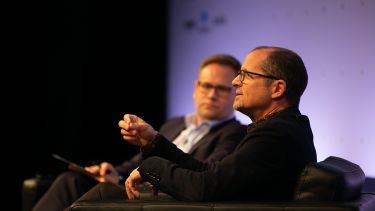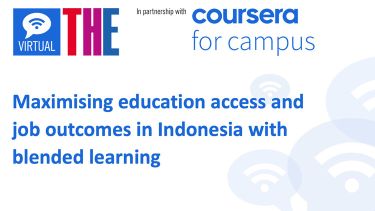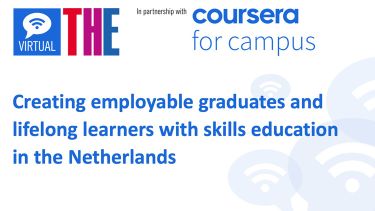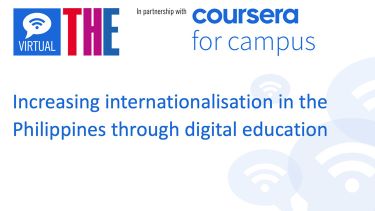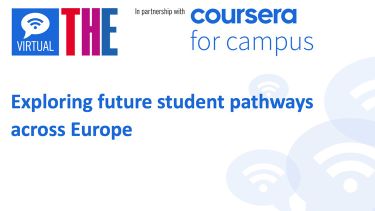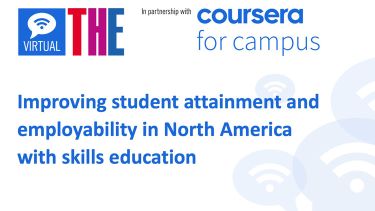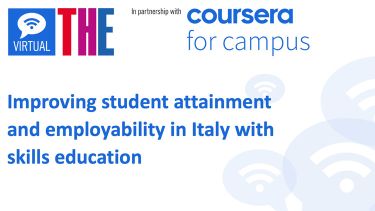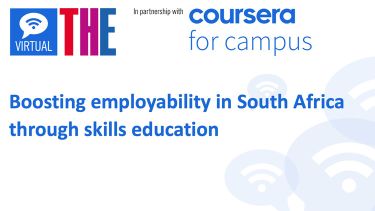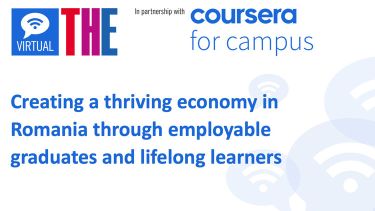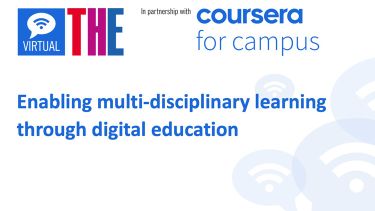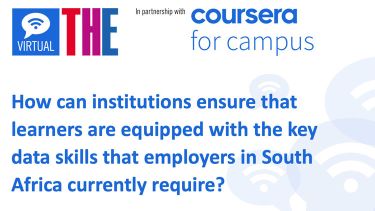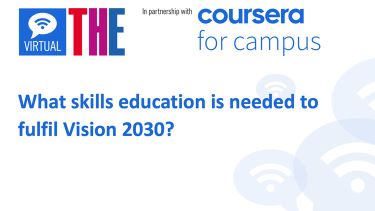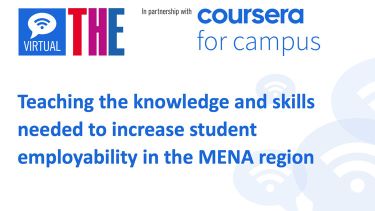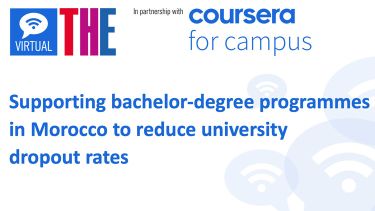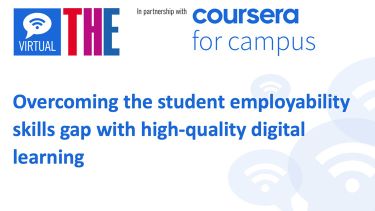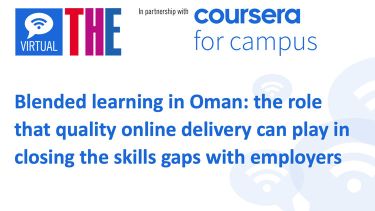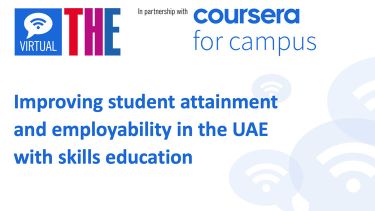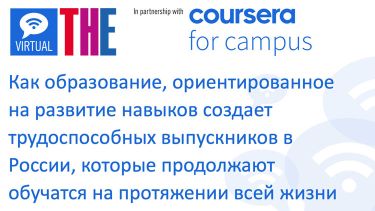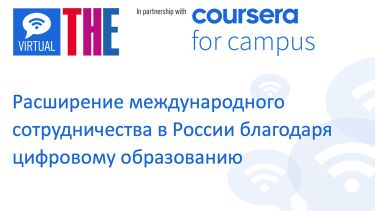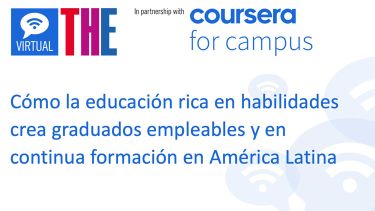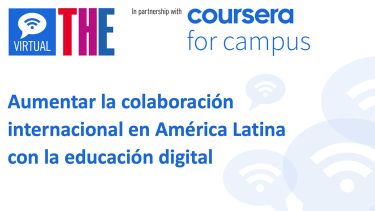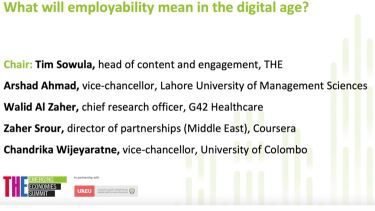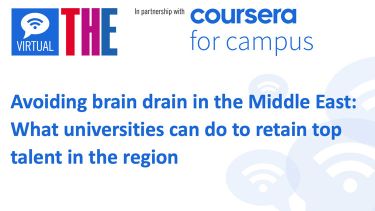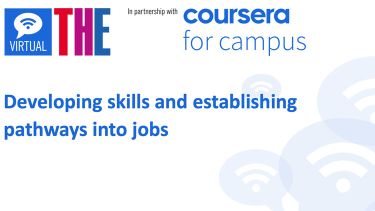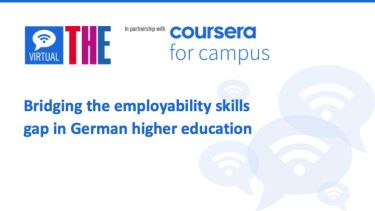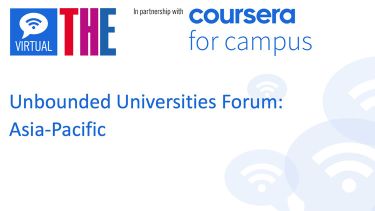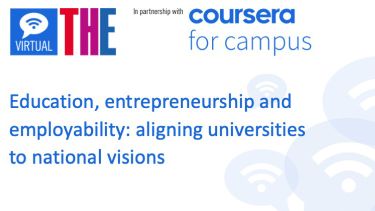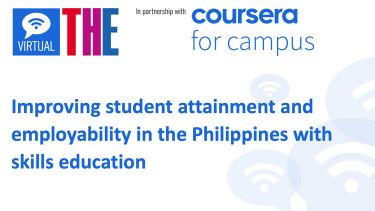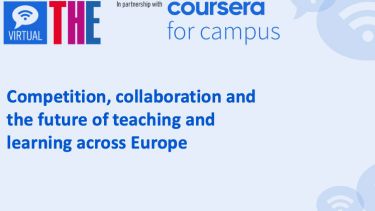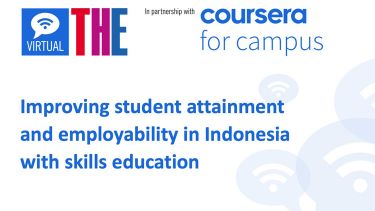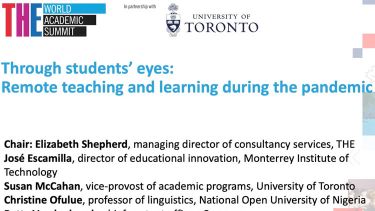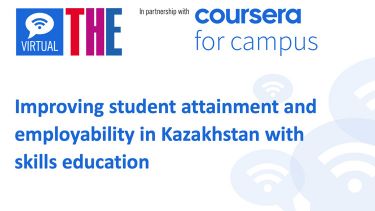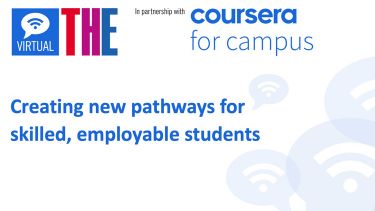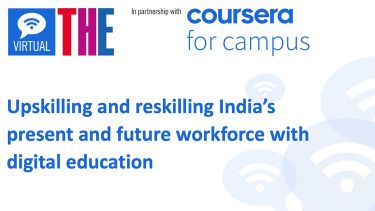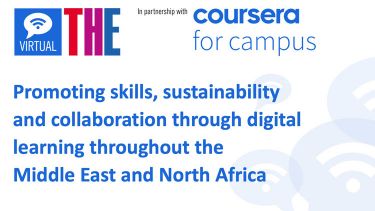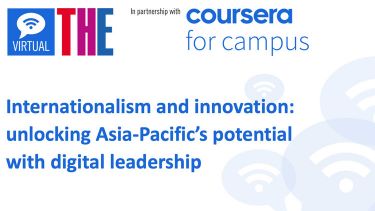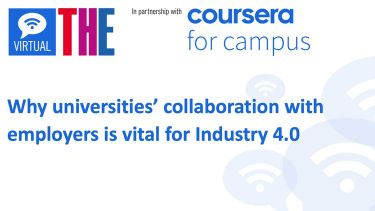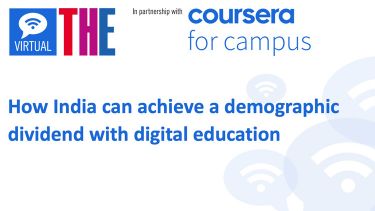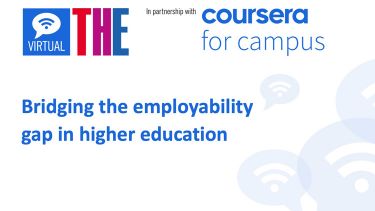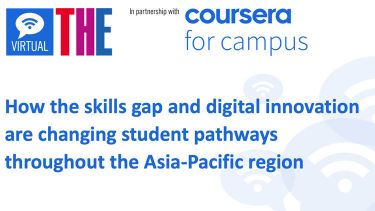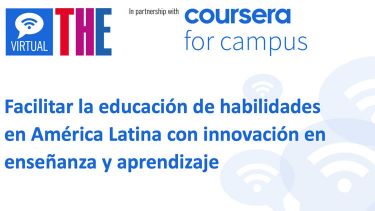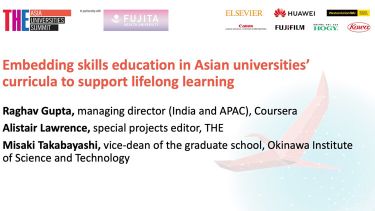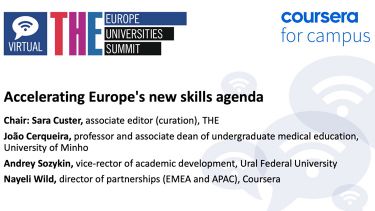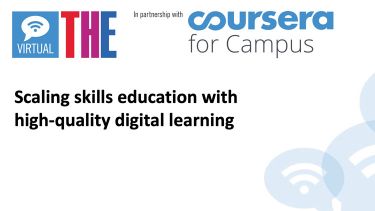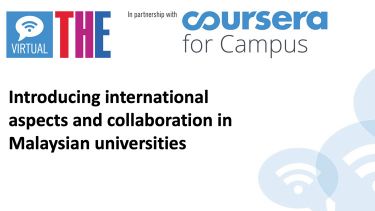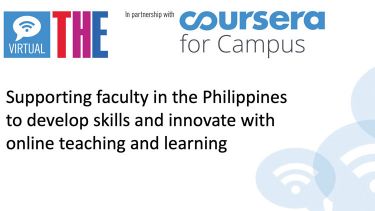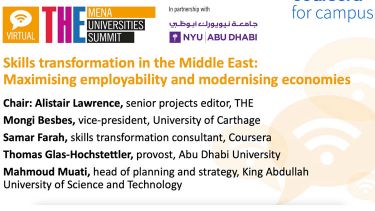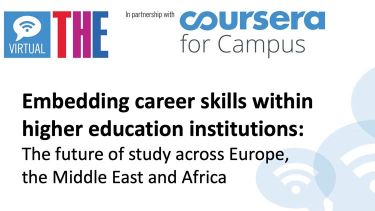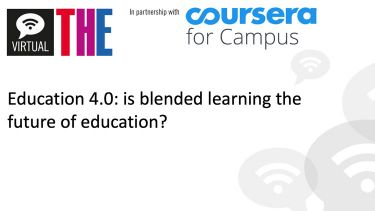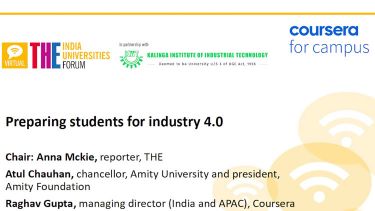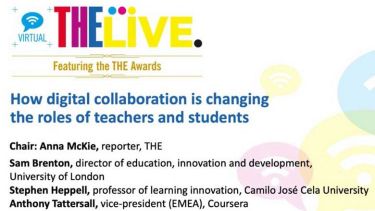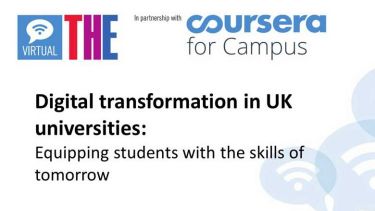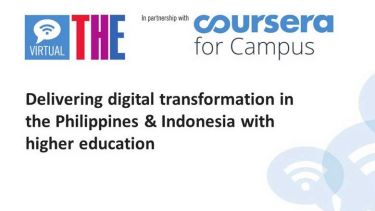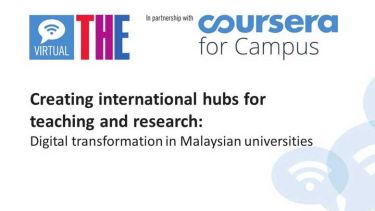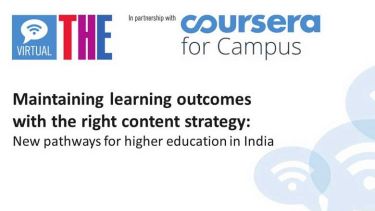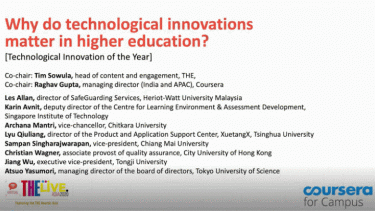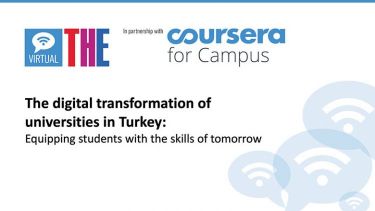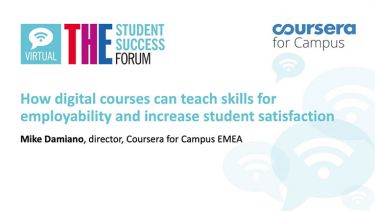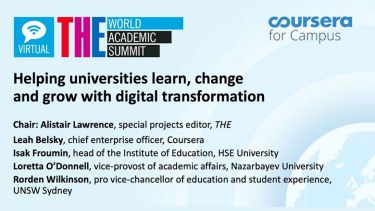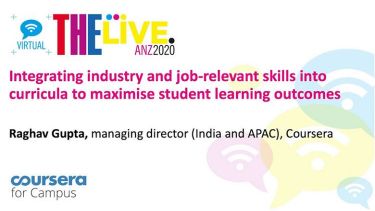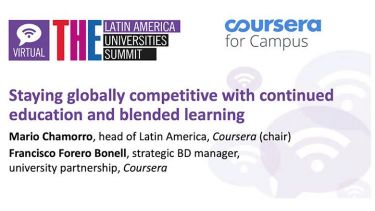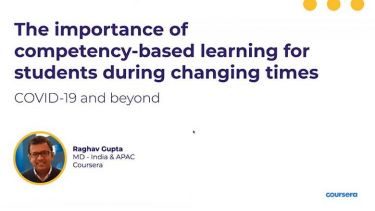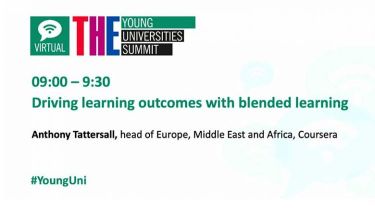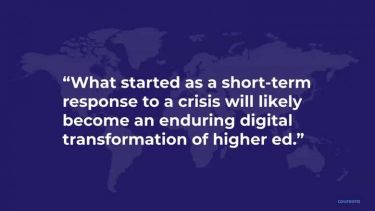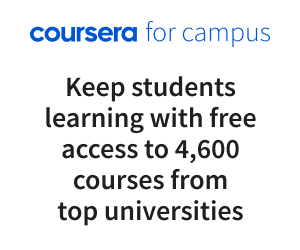With students, staff and the working population facing the demand to continuously upskill, higher education institutions can meet this growing need
Universities must adapt to meet changing student expectations and reassess and redesign courses to embed the skills graduates need for the careers of the future.
As part of Digital Universities Week, a Times Higher Education panel, in partnership with Coursera, discussed how UK universities should develop digital skills for students and staff.
Moderator Alistair Lawrence, special projects editor at THE, asked how institutions could create curricula and content to keep pace with an evolving skills landscape.
Noemi Azzolina, acting director of the digital learning hub at Imperial College London, said that the university was closely watching the government’s skills agenda. “We have already started massive work into reviewing our curricula and assessment,” she said.
“[We are] transforming our teaching and pedagogy for a more interactive style, fostering an inclusive and diverse culture, as well as developing online digital tools and practice to enhance the curricula, pedagogy and our community.”
Sam Brenton, director of education, innovation and development at the University of London, said that the pandemic had “significantly” increased learner demand and the university had more students than ever.
With student expectations changing in the blended learning environment, Brenton said it was important to engage in a dialogue with them about what higher education is.
“Not just online higher education, but the fundamentals of higher education. How you learn, and then how you learn online,” he said. “It’s not just lectures…We’re trying to equip people with the tools to learn within and beyond their discipline.”
Bhavin Bhagalia, EMEA partnerships director at Coursera, said some learners were taking a “multimodal approach”, gaining some skills from a university pathway and others from different sources.
“Graduates will see somewhere between five and seven careers in their lives so having a kind of narrow band of learning no longer works,” Bhagalia said. “The old model of graduating from university, taking those skills and getting a job no longer fits. You have to be mindful and cognisant of the need for lifelong learning and continuous professional development.”
Neil Morris, deputy vice-chancellor of digital transformation at the University of Leeds, said universities would have a “massive role to play” in providing upskilling and reskilling opportunities.
“The kind of access and flexibility that can be provided with stackable online credentials is really unparalleled,” he said. “There are more people who can benefit from higher education than those that want to fit into the mould with a campus-based education that’s primarily facilitated through lectures, seminars and practical classes.”
Watch the session on demand above or on the THE Connect YouTube channel.




